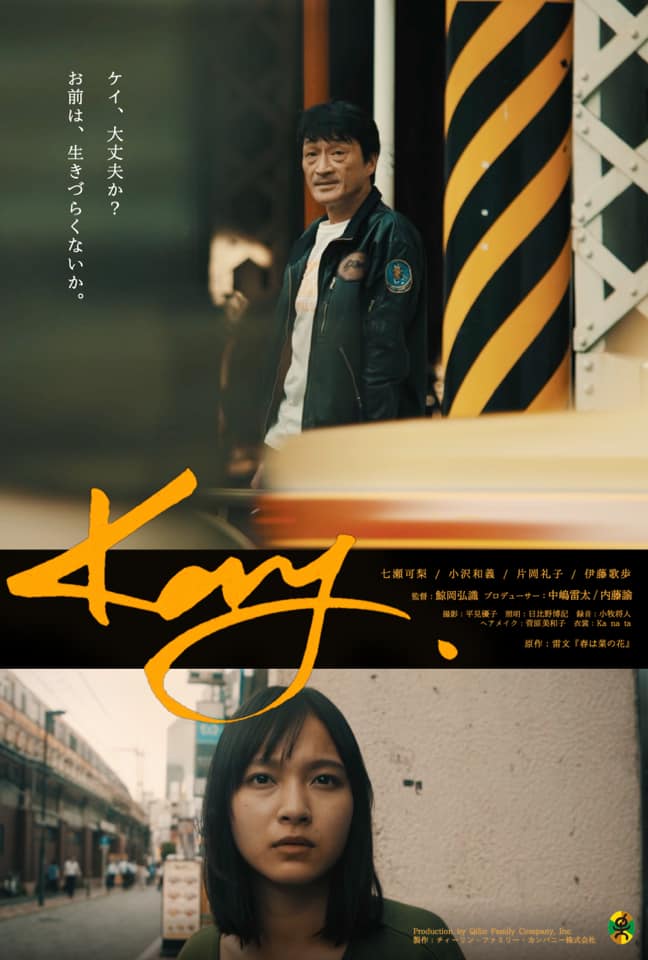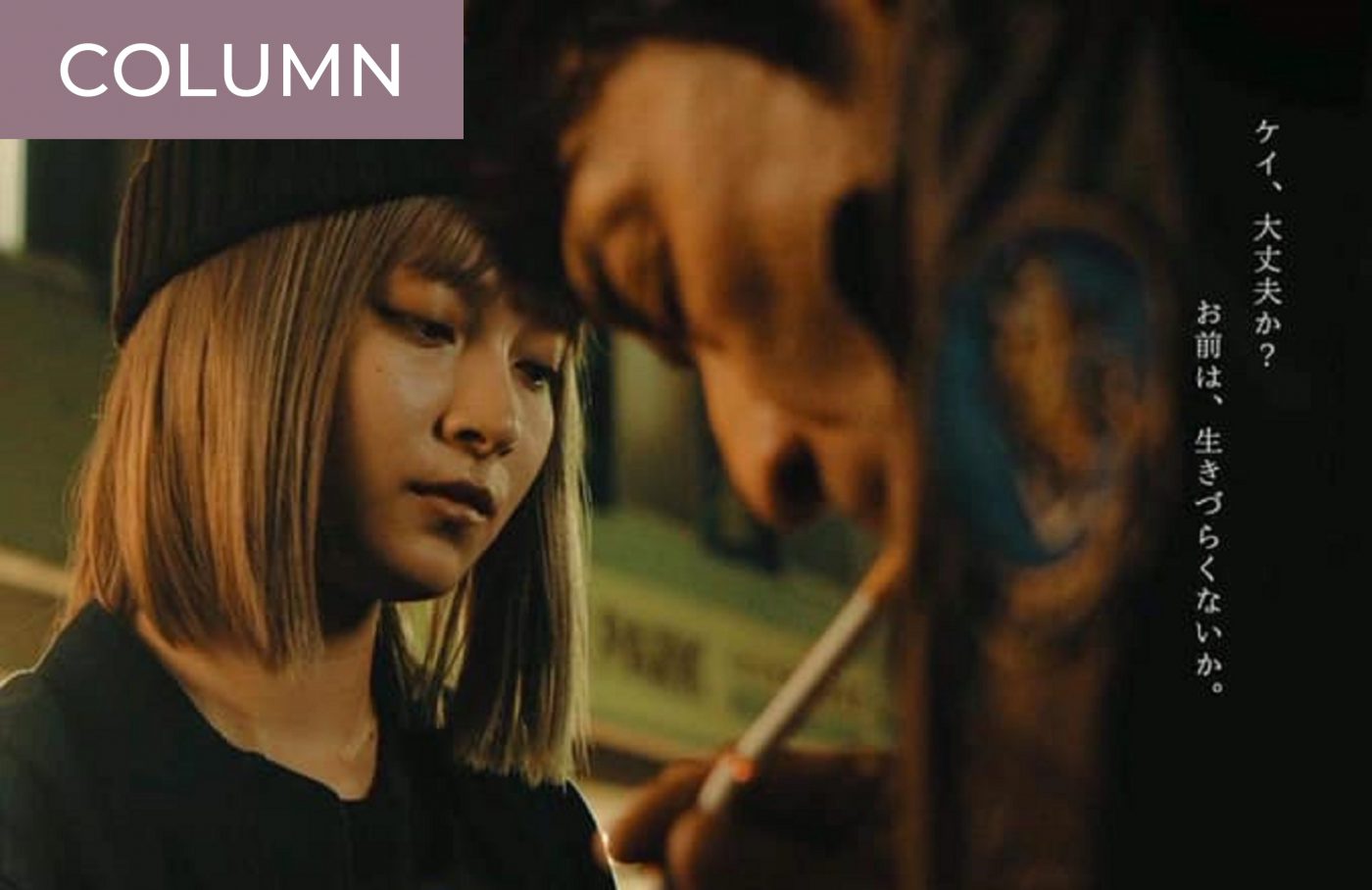I recently had the pleasure to be invited to the screening of a Japanese short film titled “Kay”, directed by Hironori Kujiraoka. The screening should have taken place in April 2020 but was postponed to September because of the coronavirus. Meanwhile, it was shown and awarded at several international short film festivals. It received Best Short Film at Berlin’s ARFF, and received no less than five awards at the New York Cinematography AWARDS, among which are Best Director, Best Cinematography, and Best Screenplay.
The movie starts as Kay, a female student, explains that her father passed away 49 days ago. According to Japanese tradition, it is the time the soul definitively leaves earth, and also the time to clean the belongings of the deceased. The viewer soon understands that Kay’s parents were divorced, and that she resents his father for leaving them. Even though she is a musician herself, she very reluctantly accepts to receive the electric guitar her dad used to play. Receiving the instrument then triggers a series of flashbacks, allowing us to explore Kay’s past relationships with her father.
“Kay” explores the themes of mourning and the difficulties of parent-child relationships. Having myself lost a parent earlier this year, the movie certainly resonated in a very personal way. It describes very delicately with that moment in life, one realizes (and in certain cases, forgives) that their parents are just human beings with their own flaws, and are as complicated as anybody else.

Kazuyoshi Ozawa (top) and Karin Nanase (bottom)
This is enhanced by how true the whole movie feels, mostly thanks to main actress Karin Nanase and main actor Kazuyoshi Ozawa (who respectively won Best Actress and Best Actor at the New York Cinematography AWARDS). Nanase’s and Ozawa’s characters are people I thought I could find at a random street corner in Tokyo. Their performances made the movie powerful.
I also appreciated how naturally the flashbacks are integrated as Kay’s day unrolls, and how accurately the cinematography reflected the mood of the main character. The only negative point were the English subtitles, which would benefit from a revision—they were not always natural or grammatically accurate.
Communicating effectively between generations is proving difficult everywhere in the world, and Japan is certainly no exception. The movie “Kay” manages to deal with this universal topic while hinting at typical Japanese society problems, making it valuable may you be interested in Japanese culture or not.
The movie stayed with me after the screening ended, and I have been reminded of some scenes the days following my viewing. For me, this usually means I should watch it again in a few years, from a new point of view.
The movie will be screened at other festivals in 2020, such as the French Independent Film Festival and the San Francisco Indie Shorts. I recommend watching it if you have the chance.




